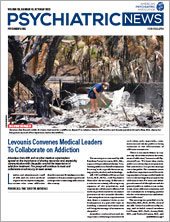The Holmes Commission on Racial Equity in American Psychoanalysis found that faculty and candidates at psychoanalytic institutes, regardless of race, agreed that psychoanalytic curricula did not adequately address race and racism, and subjects about race. The commission also found the following:
•
Candidates were not adequately trained to apply racial awareness to analysis, and a majority of candidates and faculty reported inadequate discussion of race and racism in supervision.
•
Though freedom to choose supervisors was widely reported, it was acknowledged by a notable minority of candidates that race and ethnicity should be considered in selecting supervisors.
•
Curricular representation of race was typically token, covered in one course; a class; or an optional, secondary offering.
•
Candidates perceived themselves to be more comfortable than instructors in discussing race. This perception was more pronounced among candidates who were people of color.
•
Faculty in APsA institutes reported being less comfortable in discussing race than faculty in independent institutes.
Commission Co-chair Dionne Powell, M.D., is a training and supervising psychoanalyst at Columbia University Center for Psychoanalytic Training and Research, who treats, supervises, and teaches psychiatry residents at Cornell University, Columbia University, and New York University. In an interview with
Psychiatric News, she said the inadequacy with regard to race and racism expressed by psychoanalytic faculty and candidates in the commission’s survey and interviews extends to psychiatric residency training as well. Powell is also vice president of the
American Association for Psychoanalytic Education.
She believes the failure to address race within psychiatric training, coupled with diminishing emphasis on psychotherapy, threatens to render psychiatrists unable to meet the needs of today’s patients. “These issues are not really being addressed,” she said. “There might be a single course on diversity, but this doesn’t lend itself to being able to meet psychiatry residents or patients where they are. To go into psychiatry without understanding how one’s background and culture impact one’s life—we are setting ourselves up for not being able to fully help our patients.
“I am invested in educating future psychotherapists, some of whom will go into psychoanalysis, but the majority of whom will not,” Powell said. “Actively working with faculty and supervisors to bring the racial into the psychiatric frame is essential for psychiatric and psychoanalytic education that begins in residency.”
She added that psychotherapy, especially, “requires sensitivity, openness, and humility regarding racial and ethnic diversities.”
At this year’s annual meeting of the American Association of Directors of Psychiatric Residency Training, Powell delivered a plenary address titled “Beyond Cultural Competence: Contemporary Psychiatry in a Raced Society.” In that address she said, “While the need for mental health care in communities of color has never been greater, … our ability to match the societal needs with clinicians sensitive to and representing America’s diversity remains significantly compromised.” ■
